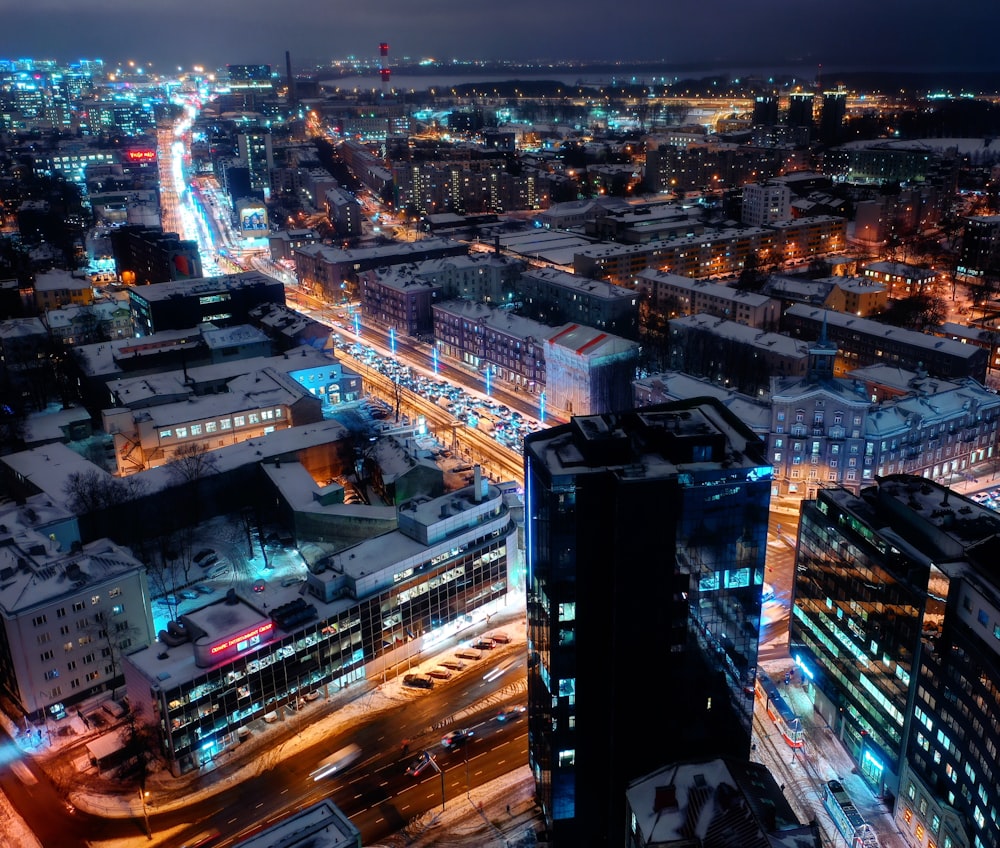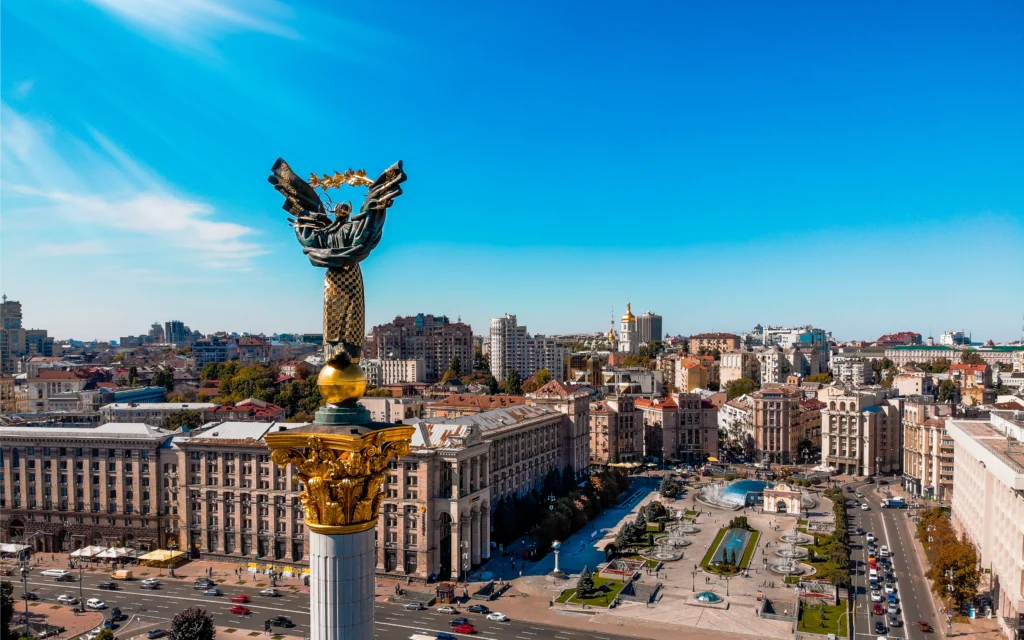Ukraine Situation Report
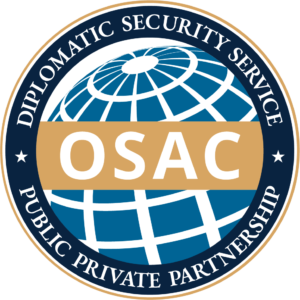
We release Ukraine Situation Reports on Wednesdays only. For events that require a major update on days we do not typically release a report, GTAC will publish one. OSAC has also established an OSAC Ukraine Portal, which includes all OSAC products on Ukraine, including previous situation reports. If you would like to receive OSAC Ukraine updates and/or to join a dedicated Signal group, please contact us and we’ll put you in touch with OSAC. The Overseas Security Advisory Council is a partnership between the U.S. Department of State and private-sector security community that supports the safe operations of U.S. organizations overseas through threat alerts, analysis, and peer networking groups. OSAC’s public representatives work directly with security professionals from U.S. private-sector organizations that have employees, operations, or other interests outside the United States. GTAC is an active member of OSAC’s Ukraine, Kyiv Chapter.
This web page provides information and resources, including several alerts covering the impact of recent sanctions and heightened export controls as well as detail on other GTAC practices that are involved in these multidisciplinary matters.
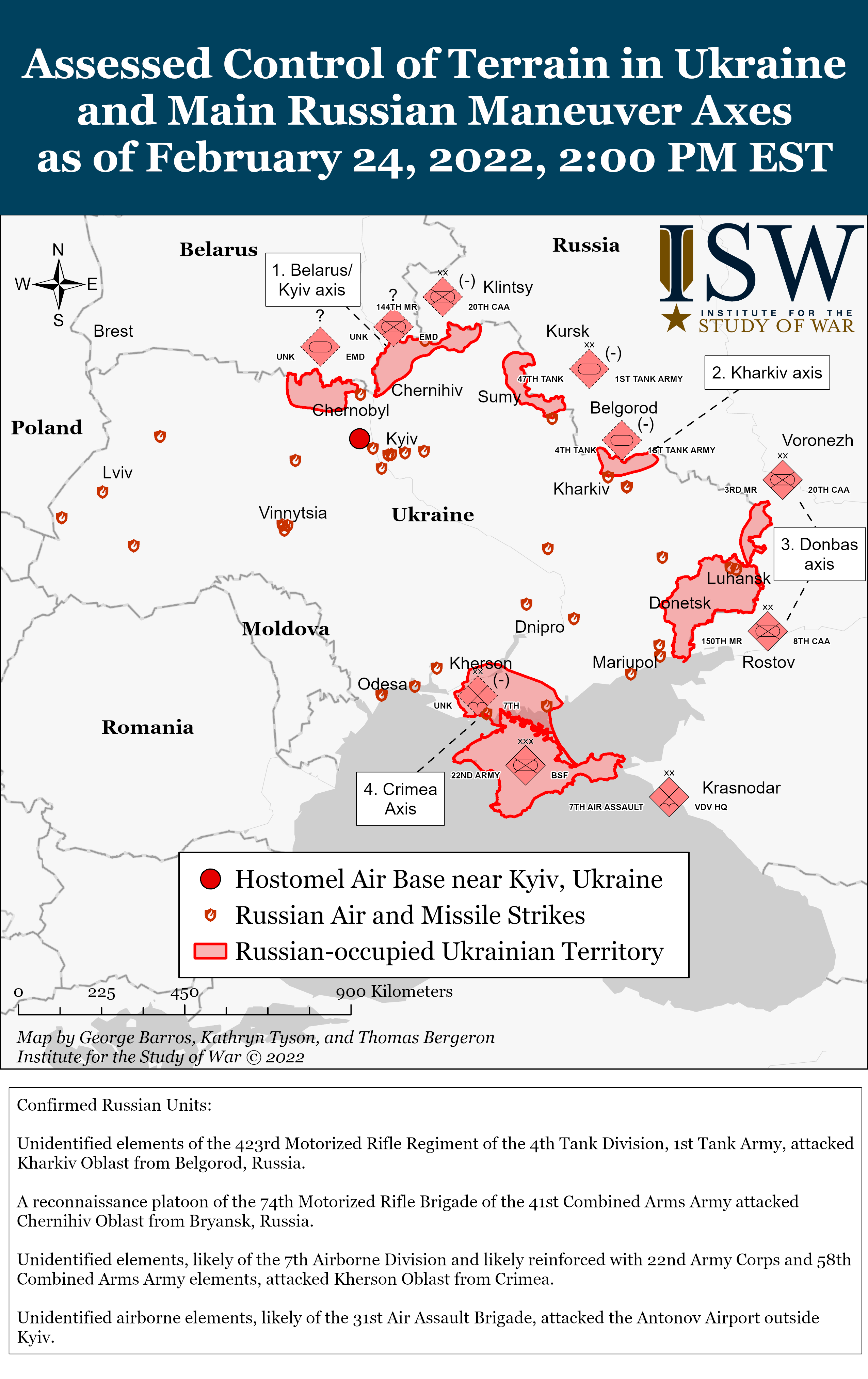 February 24, 2022
February 24, 2022
Russian President Vladimir Putin began a large-scale invasion of Ukraine on February 24, 2022, aimed at full regime change and the occupation of Ukraine. His claimed objective to “demilitarize” and “de-nazify” Ukraine was a transparent cover for an unprovoked war of aggression to occupy a neighboring state. For current, authoritative information about the war, please visit the Institute of War (ISW) and Critical Threats Project (CTP), and click here to see ISW’s interactive map of the Russian invasion of Ukraine.
Resources:
State Sanctions Registry (National Security and Defense Council of Ukraine Office)
Sanctions Timeline (The Peterson Institute for International Economics (PIIE)
Live Tracker (Correctiv)
Russia Sanctions Database (Atlantic Council)
Ukraine’s official war website (Ukrainian Ministry of Foreign Affairs)
Ukraine Under Attack: Documenting the Russian Invasion (NYT Photos)
Institute for the Study of War & Critical Threats Project
Tallinn, Estonia
The Estonian Foreign Intelligence Service has published a report covering the security situation in the Baltic Sea region. The report “International Security and Estonia 2024” discusses the latest developments in Russia’s military, foreign policy, internal politics and economy, special services and influence operations. They also turn our attention to China, Sino-Russian relationship and Chinese technology. The Estonian Foreign Intelligence Service protects Estonia from external security threats. The service collects and analyses intelligence to support Estonia’s national defense and security policy.
L‘histoire se répète: The specter of the Holodomor famine of the 1930s is haunting Russia’s war
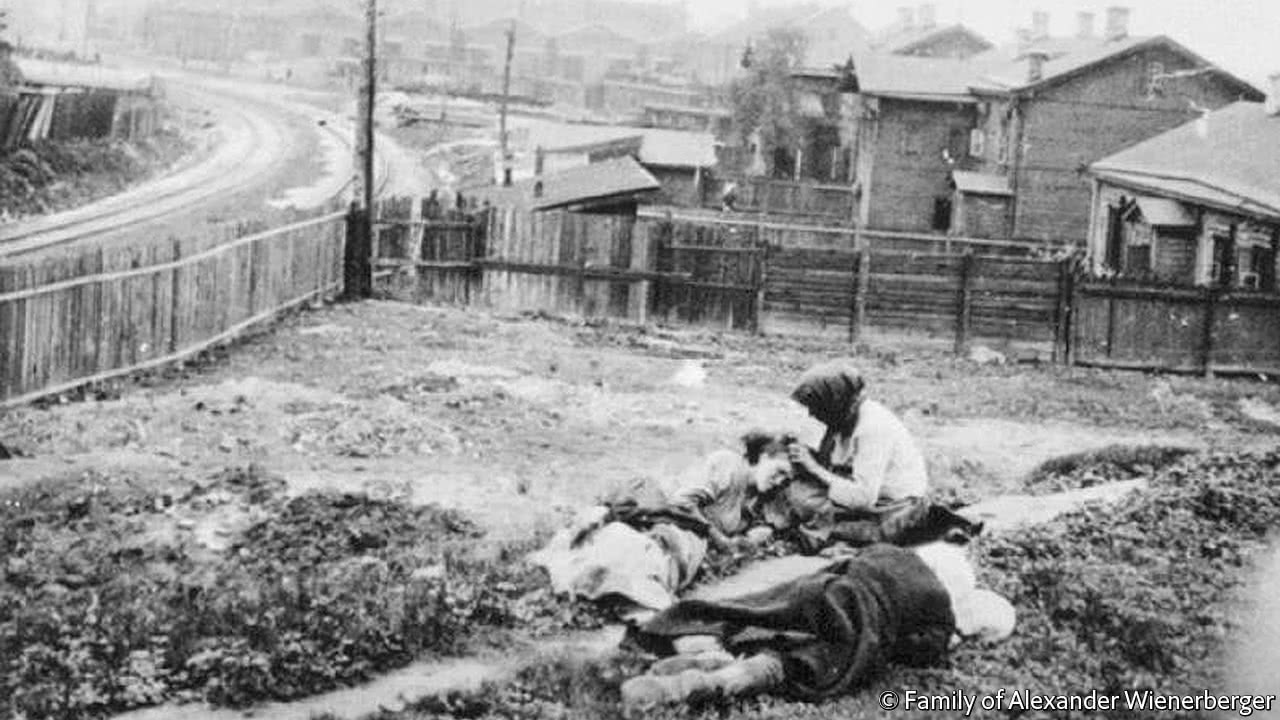
The photograph above is from Anne Applebaum’s powerful book: Red Famine: Stalin’s War on Ukraine
Ninety years ago, Joseph Stalin’s Soviet regime inflicted a devastating famine on Ukraine, killing 3.9 million people in what became known as the Holodomor, or genocide by hunger. Now Vladimir Putin, whose invasion has stalled on the battlefield, is trying to starve Ukraine into submission again. Russian troops have laid waste to farmland, destroying agricultural equipment and planting landmines in the rich soil where crops should grow. Ukraine’s traditional supply routes have been wrecked, its ports now under Russian control. The attempted destruction of the food and agriculture sector in Ukraine — a land famed for its fertile “black earth”— is an emergency that has prompted a desperate scramble by aid agencies to deliver supplies and save lives. It is also a longer-term threat to European markets and the wider world. Some of the poorest nations in Africa and the Middle East face their own potential hunger crises in the months and years ahead, if vital imports from Ukraine run out. More in this April 1, 2022 article in Politico. See also this September 30, 2017 article (“Stalin’s famine, a war on Ukraine”) in The Economist, as well as the October 1, 2022 article in Kellogg Insight (“Why Did So Many Ukrainians Die in the Soviet Great Famine?“). The faculty of the Kellogg School of Management at Northwestern University bring their latest research and expertise in an accessible, engaging format. Kellogg Insight provides ambitious business leaders with the research and expertise needed to drive growth. See also Russia’s Famine Game: Obey or Starve!, and Execution by Hunger: The Hidden Holocaust, by Miron Dolot.
Human Trafficking and Sexual Crimes
There is an increased risk of human trafficking at border crossings, with young women and unaccompanied teenagers at particular risk. Increased reports of rape and sexual violence against Ukrainian women and children must be thoroughly and independently investigated to ensure accountability. The UN (UNODC) and the International Organization for Migration (IOM) are working with refugee response teams and civil society organizations on the ground in Ukraine and neighboring countries “to ensure the gendered nature of this crisis is addressed with gender sensitive response.”
After the full-scale invasion, sexual crimes by Russians against Ukrainians became widespread. After the liberation of the occupied territories, more and more new facts are emerging. According to the Office of the Prosecutor General of Ukraine, the age of the victims ranges from four years to 85, both female and male. Currently, a new department has been created in the Office of the General Prosecutor, which deals exclusively with this category of cases and has significantly changed the approaches to their investigation – victims can remain anonymous (even for their families), testify only once and – at any stage – can refuse to participate.
The exact number of such cases – due to their sensitivity (often victims, avoiding re-traumatization, do not want to mention what they experienced) – is not announced. From an OSCE report published in the summer of 2022, it is known that only “in Bucha, in the basement of one of the houses, 25 girls aged between 14 and 25 were kept, who were gang-raped by the Russian military, as a result of which nine of them became pregnant.”
Sexual crimes are not only rape, but also genital torture, public exposure, keeping men and women together; examination of women not by women, but by men, etc. This is strictly prohibited by Article 27 of the Geneva Convention for the Protection of the Civilian Population in Time of War (1949). It should be noted that sexual crimes are one of the components of the crime of genocide.
In cooperation with foreign colleagues, the Prosecutor General’s Office is finalizing the development of a mechanism that will allow even those victims who have moved outside of Ukraine to testify. In addition, amendments to the Criminal and Criminal Procedure Codes of Ukraine are currently being prepared, which will allow life imprisonment for those guilty of such crimes. The possibility of implementing a mechanism under which Ukrainian victims of sexual violence by Russians will receive compensation payments at the expense of funds recovered from confiscated Russian assets is being discussed. The aid provided by the partner states is also being considered for this purpose.
It is important for Ukraine to prove the systematic nature of this type of crime, which will allow it to apply to the International Criminal Court, whose office is currently being prepared to open in Ukraine. The Genocide Convention has been in force worldwide since 1948. Since that time, there has been proof of genocide by specific officials, but never by states (here it is required not only to justify the intention to destroy representatives of a certain nation, but the intention of “genocidal murder”). Russia may become the first in the list of states. “We strive to bring the Russian perpetrators of genocide to justice, and we will fight for justice,” Ukrainian Foreign Minister Dmytro Kuleba said on this occasion.
Evidence of intentional genocide is also the mass transfer of people without their consent (deportation from temporarily occupied territories to Russia). Also, the kidnapping of Ukrainian children, followed by their adoption by Russian families. One such child was officially adopted by the Russian commissioner for children’s rights, Maria Lvova-Belova, in connection with which the Ukrainian side demanded to open a criminal case against her. Source: the European Values Center for Security Policy (Prague, Czech Republic)
Cyber Security Issues
For all Russian cyber-related “incidents” before and after the start of the war on February 24, 2022, please contact us. See also GTAC’s Cybersecurity Assessments page and Understanding Disinformation Disorder page.
End-Use Monitoring in Ukraine
November 7, 2023: Review of Department of State End-Use Monitoring in Ukraine / Between the time of Russia’s full-scale invasion of Ukraine in February 2022 and the time of this Office of Inspector General (OIG) review, the U.S. government had committed to providing approximately $30 billion in civilian and military security assistance to Ukraine. U.S. law requires the establishment of a program for end-use monitoring (EUM) of U.S.-origin defense articles and services sold, leased, or exported under the authority of the Arms Export Control Act or the Foreign Assistance Act of 1961. Although the Department of State (Department) has broad interagency policy responsibilities for the supervision and direction of exports of U.S.-origin defense articles and services, it has EUM responsibility only for the programs it directly manages, including commercial sales monitored by the Blue Lantern program and direct foreign assistance to Ukraine’s State Border Guard Service and the National Police of Ukraine. OIG estimated the total property subject to EUM by the Department in Ukraine was $311.7 million at the time of this review.

Dusk in Kyiv on Feb. 24, 2022, as Russian forces were advancing on the city.
